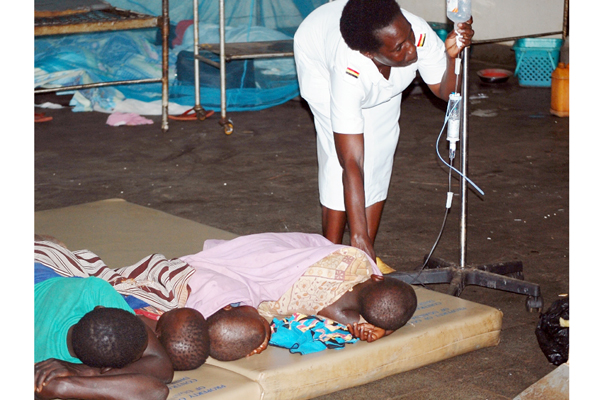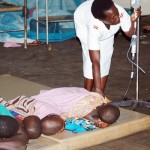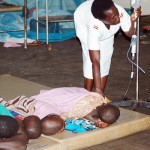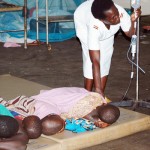BY HENRY ZAKUMUMPA
The delay in reforming a critical Bill in parliament may render AIDS drugs in Uganda illegal
We no longer fear AIDS. Eddagala gyelili e Mulago (drugs are available at Mulago Hospital),” says Ssenkindu Moses, 32, who tells me he has had three sexual partners in the last one month and did not use condoms with any of them.
Many Ugandans take AIDS treatment for granted. This ‘ARV complacency’ has been partly blamed for the recent spike in new HIV infections. Uganda’s HIV prevalence rates have risen from 6.7% in 2005 to the current 7.3%.
Because most antiretroviral treatment (ART) in Uganda has been funded by the American taxpayer, with PEPFAR paying for as much 85% of all AIDS treatment costs in Uganda, you would regard financial sustainability as the challenge to continued access to treatment in Uganda. But you would be mistaken.
According to Dennis Kibira, Medicines Advisor at HEPS, a local NGO, 90% of AIDS drugs in Uganda are generic drugs.
A generic drug is an identical copy of a branded one that is usually developed and manufactured by innovator pharmaceutical giants such as Pfizer and Norvatis.
Pharmaceutical giants invest millions of dollars in developing and marketing new drugs, costs which generic drug manufacturers don’t incur and hence branded drugs are many times the cost of generics.
“Unless the Ugandan parliament revises and re-introduces the Industrial Properties Bill (2009), the permission to manufacture cheap generic ARV drugs will cease in 2016 with thousands affected since Quality Chemicals manufactures generic Aids drug,’’ said Moses Mulumba, Executive Director of CEHURD, a health rights advocacy NGO.
India which supplies most of Uganda’s AIDS drugs, has developed a thriving generics industry, leading to it being dubbed “the pharmacy of the developed world” for the low cost of its generic drugs, especially antiretrovirals, some of which cost as little as a tenth of the brand price.
For developing countries such as India, the ban on manufacture of generic Aids drugs came into force in 2005 under the TRIPS agreement of the WTO whereas a similar ban on poorer developing countries such as Uganda will take effect in 2016 unless the Ugandan parliament revises the industrial properties bill (2009) which would, inter alia provide for extension of this deadline.
According to the WHO, ‘Developing countries are failing to make full use of flexibilities built into the World Trade Organization’s (WTO) Agreement on Trade-Related Aspects of Intellectual Property Rights (TRIPS) to overcome patent barriers and, in turn, allow them to acquire the medicines they need for high priority diseases, in particular, HIV/Aids.
With the expiry of the TRIPS grace period, the alternative in Uganda would be to buy these drugs much more expensively from the original western manufacturers.
At the moment, passing the Industrial Properties Bill (2009) in Uganda, after amending it to take full advantage of the ‘flexibilities’ in the TRIPS agreement would, inter alia, extend the grace period for manufacturing generic Aids drugs remains the best hope for the thousands on Aids treatment in Uganda.
In November last year, a consortium of NGOs led by CEHURD took out a half page newspaper appeal to Kahinda Otafiire, the Justice minister to seek his support in revising the bill before it is passed by parliament.
“The bill left our desk. We did our part. It is now before parliament, specifically before the legal affairs committee” sources within the Ministry of Justice said.
However, the Bill which was brought before the committee in 2009 has not been enacted since and the Bill lapsed with the 8th parliament. The Industrial Properties Bill (2009) has now been inherited by the current parliament. The Ministry of Justice, however, indicated that a Bill should not spend more than 45 days before a committee of parliament.
“As stakeholders, we are waiting for the public hearing on this bill. However, since April this year when the Expert Report on this bill was released by Ministry of Trade, there have been no engagements on this Bill by the 9th Parliament,” says Mariam Akiror of HEPS-Uganda.
“Laws take time to enact as you have to follow so many procedures including the draft being presented before cabinet and even formulating policy and objectives and parliament has many priorities,” says a Uganda Law Reform commission official. However, ‘big pharma’ interests are always a part of the story.
Mariam Akiror of HEPS Uganda insists that the Bill as it is would do more harm than good and even suggests that the status quo is preferable as ‘big pharma’ would be hard-pressed to enforce their patents in the current legal regime. In the current Bill, government would need the consent of a patent holder before making a generic drug yet the TRIPS flexibilities permit poor countries to make a copy without permission on account of a public health emergency.
Charles Birungi of UNDP(Uganda) insists that the current Bill is about “enforcement of certain types of intellectual property rights” which are private rights enjoyed mainly by western pharmaceutical giants. Revising the Bill would be a boost for Ugandan pharmaceutical industries such as Quality chemicals as it would legalize their production of generics.
“There are few priorities before parliament which should take precedence over our very lives as Ugandans. If I was an MP, this bill would be the most important item on the agenda because it affects millions of Ugandans. Look at how many Ugandans are getting infected every day and how many will need these drugs?” asks a dejected Gertrude Namusisi, 42, who is living positively with HIV/AIDS.
Henry Zakumumpa works with Makerere University and is 2011 Media Fellow of the Center for Health, Human Rights and Development (CEHURD).
zakumumpa@yahoo.com
 ers in Uganda have for decades fought hard to persuade the government to improve their working conditions. However, many of them have over the years given up the struggle, opting to join other professions and sectors, or staying in the medical field but giving half-hearted service, Workers MP Dr Sam Lyomoki has observed.
ers in Uganda have for decades fought hard to persuade the government to improve their working conditions. However, many of them have over the years given up the struggle, opting to join other professions and sectors, or staying in the medical field but giving half-hearted service, Workers MP Dr Sam Lyomoki has observed.



